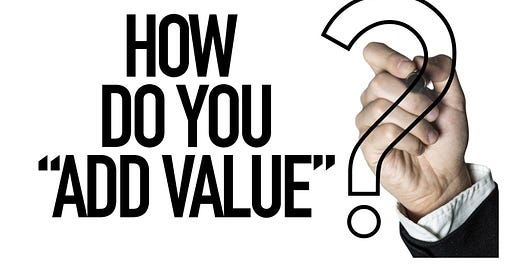The Real Metric That Matters : Translating Team Success into Executive Insights That Show Value
The value of an Agile Coach goes beyond conducting retrospectives or facilitating stand-ups.
Introduction
In the ever-evolving landscape of enterprise agility, the role of an Agile Coach can sometimes seem shrouded in mystery. Are they simply facilitators, or is there a tangible return on investment in their services? Let's delve into how Agile Coaches can be the catalysts for significant improvements in efficiency and effectiveness in an organization.
The value of coaching
The value of an Agile Coach goes beyond conducting retrospectives or facilitating stand-ups. Coaches are the gardeners of the corporate world, nurturing the seeds of agility until they blossom into self-sustaining practices. They empower teams to navigate through complexity by instilling a culture of continuous improvement and a growth mindset.
Metrics that matter
To measure the impact of Agile Coaches, we must look at metrics that resonate with executive concerns. Flow metrics like throughput and cycle time provide a compelling narrative of improvement by translating team efficiency into language that executives understand and care about—delivering value faster and more reliably.
The coach's journey
An Agile Coach's journey with a team is not indefinite. There comes a time when the coach must assess if their continued presence adds value or if it's time to let the team continue their journey independently. This decision should be based on if the team has internalized agile practices and whether or not the coach can contribute more elsewhere.
The invisible work of an Agile Coach is crucial to fostering an environment where agile principles thrive and produce measurable business outcomes. It's about creating lasting change that continues to deliver value long after the coach has moved on.
Five key takeaways
Coaches cultivate culture: An Agile Coach's true value lies in cultivating a culture of agility that continues to grow organically. By instilling agile values and principles, coaches ensure their teams don't just follow a process, but embody a culture of agility that leads to sustained improvement and innovation.
Metrics over anecdotes: Quantifiable improvements speak louder than qualitative assurances in the executive suite. Executives respond to hard data. Agile Coaches must, therefore, focus on metrics that clearly demonstrate improvements in efficiency, such as reduced cycle times and increased throughput.
Empowering self-sufficiency: The ultimate goal of an Agile Coach is to render their role obsolete by empowering teams to be self-sufficient. Coaches aim to create an environment where teams can solve their own problems and continuously improve, making the need for an external coach less critical over time.
Impact over activity: Coaches are measured by the impact they have on a team, not the volume of their activity. The true measure of success for an Agile Coach is not in how busy they are, but in the tangible outcomes their actions create, such as improved product quality or faster delivery times.
Navigating the transition: Knowing when to step back is as important as knowing when to step in for an Agile Coach. A skilled coach understands the lifecycle of their involvement and strategically plans their withdrawal as teams mature, ensuring a smooth transition and sustained momentum.
Next steps
There is a great podcast on this by the Enterprise Agility Mastery crew.






